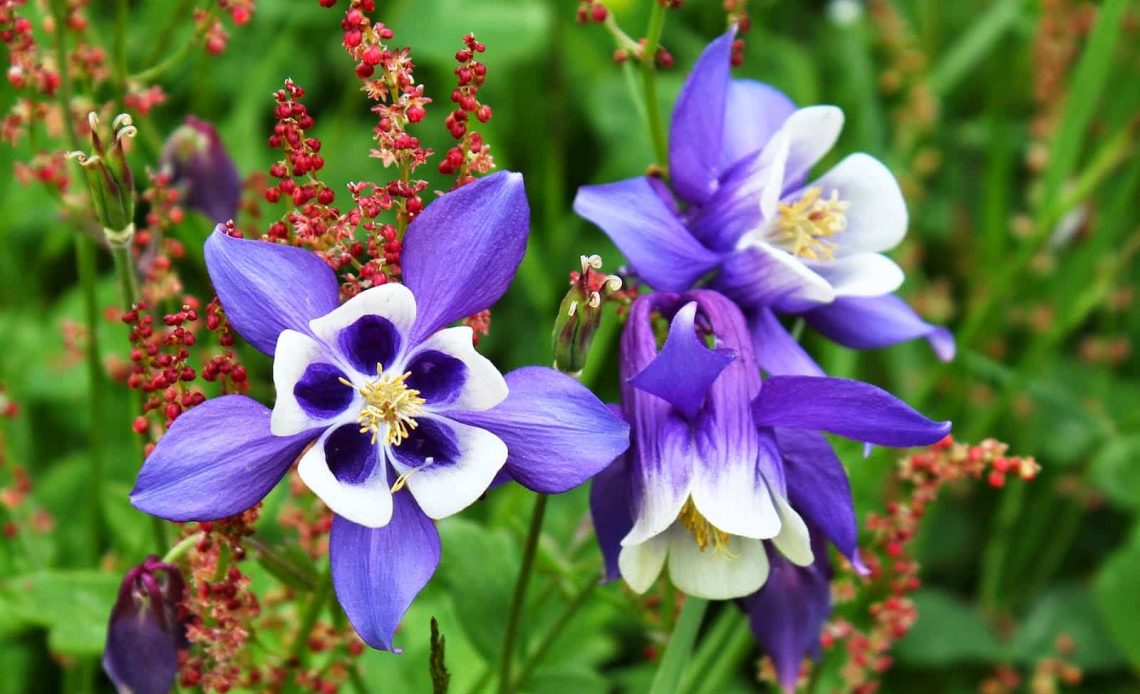
Throughout history, flowers have been used to symbolize various emotions and virtues, including wisdom. Here are ten flowers that represent wisdom:
From the Sunflower to the Euphorbia, a variety of flowers have been linked with wisdom and intelligence throughout the annals of history. Some of the most renowned flowers symbolizing wisdom include the Sunflower, Marigold, Sage, Jacaranda, Chrysanthemum, Iris, Perovskia, Polygonatum (Solomon’s Seal), Aquilegia (Columbine), and Euphorbia (Spurge), among others.
Many individuals are unaware that each flower carries its own unique symbolism in the language of flowers, capable of expressing a myriad of emotions, desires, or sentiments. Among the vast array of symbolic meanings attributed to flowers, wisdom stands out as a particularly cherished virtue.
Flowers That Represent Wisdom
The article on the provided URL discusses various flowers that symbolize wisdom. It mentions a range of flowers, including the Sunflower, Marigold, Sage, Jacaranda, Chrysanthemum, Iris, Perovskia, and Polygonatum, each of which has been historically associated with wisdom and intelligence. The article provides an interesting insight into how these flowers came to represent wisdom and how their symbolism is interpreted in different cultures.
1. Sunflower
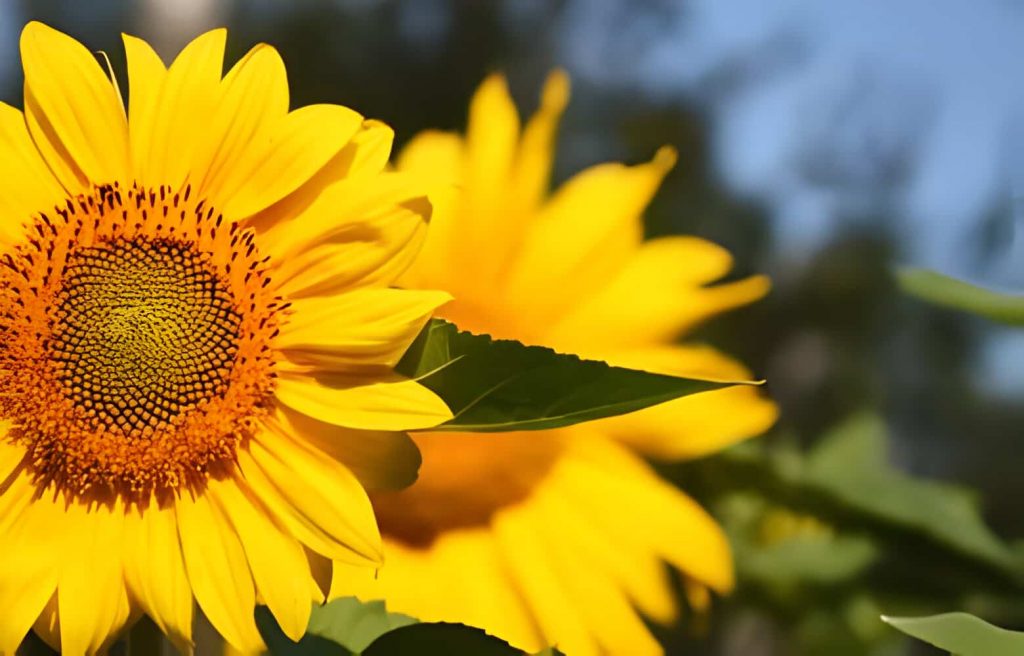
The sunflower, with its bright yellow petals and large, round center, is often associated with longevity and wisdom. This is because the sunflower always turns to face the sun, symbolizing spiritual knowledge and the desire to seek light and truth. The sunflower’s ability to follow the sun across the sky is a powerful reminder of the importance of orienting ourselves towards the light of wisdom.
The Sunflower, known scientifically as Helianthus annuus, is a vibrant plant native to the Americas. It’s recognized for its bright yellow blooms.
Symbolically, Sunflowers represent adoration, loyalty, and longevity. They’re often associated with the sun due to their warm colors, symbolizing passion and creativity.
Caring for Sunflowers involves providing them with plenty of sunlight, watering sparingly, and ensuring they have well-drained soil. They’re low-maintenance plants that can tolerate a range of soil conditions and are drought-tolerant.
Apart from Sunflower, it’s also known as Helianthus, and has nicknames like Sunny, Sunbeam, and Goldie.
2. Marigold
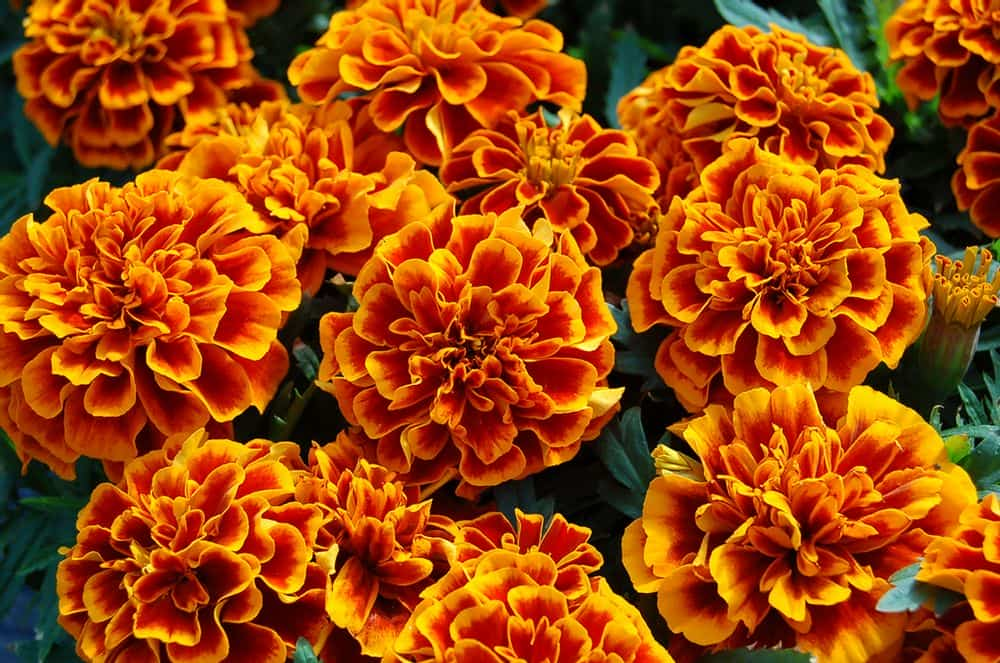
Marigolds are frequently associated with the concepts of passion and inventiveness, both of which are integral to wisdom. They inspire us to adopt innovative thinking and a non-conventional approach, which are crucial to gaining wisdom. The marigold’s bright orange and yellow colors represent the sun’s warmth and vitality, reinforcing its link to wisdom and illumination. Furthermore, these Flowers That Represent Friendship add another layer of symbolism, connecting the marigold’s wisdom to the values of camaraderie and mutual understanding.
The Marigold, known scientifically as Tagetes, is a vibrant flower native to the Americas. It’s recognized for its bright orange and yellow blooms.
Symbolically, Marigolds represent passion, creativity, prosperity, and even grief and pain. Also they’re often associated with the sun due to their warm colors, symbolizing passion and creativity.
Caring for Marigolds involves providing them with plenty of sunlight, watering sparingly, and ensuring they have well-drained soil. So They’re low-maintenance plants that can tolerate a range of soil conditions and are drought-tolerant.
Apart from Marigold, it’s also known as African Marigold or Aztec Marigold (Tagetes erecta), French Marigold (Tagetes patula), and Mexican Marigold (Tagetes lucida).
3. Sage
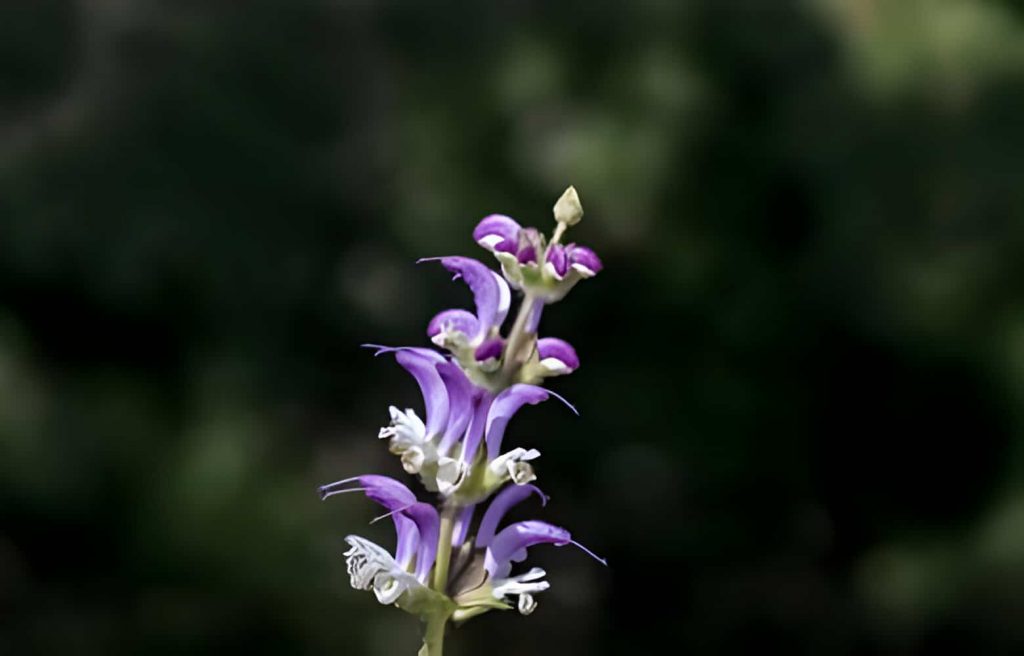
Sage is not only a flower but also a renowned herb in many cultures. It symbolizes wisdom, longevity, and good health. Many believe that sage brings wisdom in the form of learning and knowledge. The sage plant’s gray-green leaves and delicate purple flowers are a beautiful sight in any garden, reminding us of the beauty of wisdom and knowledge.
Sage, also known as Salvia officinalis, is a perennial, evergreen subshrub native to the Mediterranean region. It’s part of the mint family and is known for its grayish leaves and blue to purplish flowers.
In terms of symbolism, Sage flower meaning wisdom and immortality. It’s believed to improve memory and grant wisdom. In spiritual practices, Sage is used for purification, healing, and protection.
Caring for Sage involves providing it with plenty of sunlight, watering sparingly, and ensuring it has well-drained soil.
Apart from Sage, it’s also known as common sage, garden sage, golden sage, kitchen sage, true sage, culinary sage, Dalmatian sage, and broadleaf sage.
4. Jacaranda

Jacaranda tree, with its stunning purple flowers, symbolizes wisdom, rebirth, wealth, and a good future. Also It is often planted in university campuses, symbolizing the pursuit of knowledge. The tree’s vibrant purple flowers create a stunning display, reminding us of the beauty and richness of wisdom.
Jacaranda, specifically the Jacaranda mimosifolia, is a tropical tree native to South America. So It’s known for its vibrant purple-blue flowers that bloom in late spring and autumn.
In terms of symbolism, the Jacaranda is often associated with wisdom and rebirth. However the blooming of its flowers is seen as a sign of new beginnings.
Caring for a Jacaranda involves providing it with plenty of sunlight, watering sparingly, and ensuring it has well-drained soil. It’s a fast-growing tree in tropical environments, but its growth rate slows down outside its ideal conditions.
Apart from Jacaranda, it’s also known as the blue jacaranda, green ebony, fern tree, sharp-leaf jacaranda, and black poui.
5. Chrysanthemum
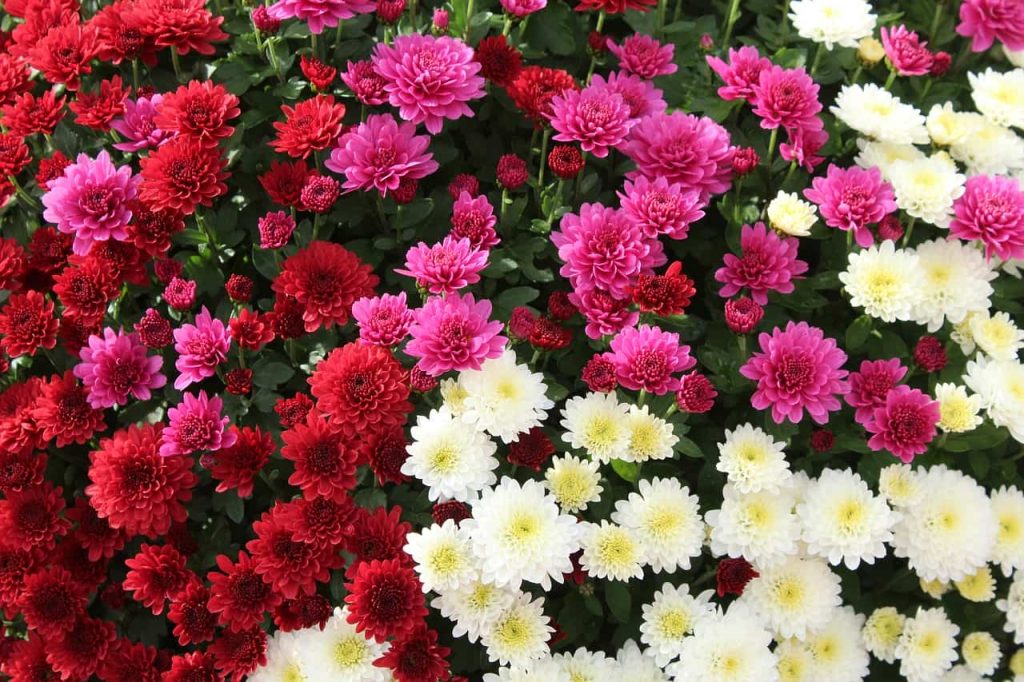
In numerous traditions, the chrysanthemum is revered as a beacon of wisdom, longevity, and happiness. This flower, often associated with positivity and upliftment, fosters the growth of wisdom. The multitude of petals on a chrysanthemum symbolizes the various aspects of wisdom, serving as a reminder that wisdom is derived from a wide array of experiences and viewpoints. Moreover, these flowers that represent family, further enhance the symbolism, adding a layer of familial unity and strength to the wisdom they embody.
The Chrysanthemum, often called “mums” or “chrysanths”, is a flowering plant native to Asia and northeastern Europe. It’s known for its vibrant blooms that come in a variety of colors.
Symbolically, Chrysanthemums carry the meaning of love, loyalty, happiness, longevity, and joy. They’re also associated with friendship, trust, joy, optimism, and fidelity.
Caring for Chrysanthemums involves providing them with plenty of sunlight, watering sparingly, and ensuring they have well-drained soil. They’re usually planted in early spring when the weather is temperate.
Apart from Chrysanthemum, it’s also known as mums, chrysanths, Dendranthema, and Leucanthemum.
6. Iris
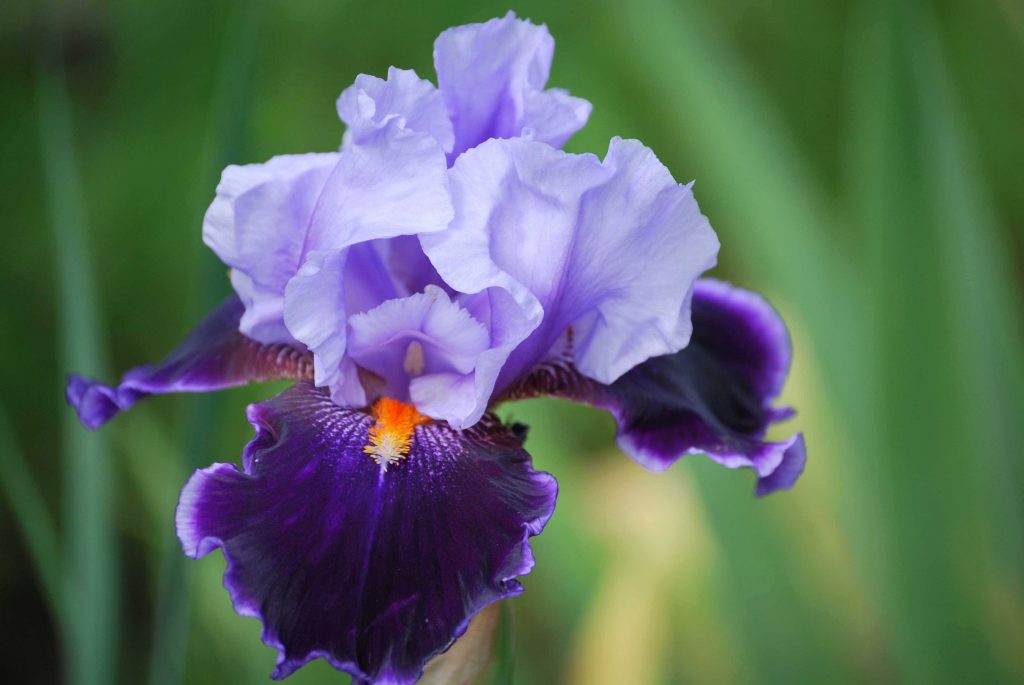
The iris symbolizes wisdom, hope, trust, and valor. In Greek mythology, Iris was the goddess of the rainbow, who was a messenger on the gods’ behalf, symbolizing communication and wisdom. The iris’s bold colors and unique shape make it a striking addition to any garden, symbolizing the boldness and uniqueness of wisdom.
The Iris, also known as the rainbow flower, is a genus of about 300 species of flowering plants. Also It’s native to Europe, Asia, and North America. The Iris is known for its unique blooms that are made up of two different kinds of petals, falls and standards.
Symbolically, Iris flowers represent hope, faith, courage, wisdom, purity, and royalty. They’re often given to people who are going through a tough time or facing a difficult challenge.
Caring for Irises involves providing them with plenty of sunlight, watering sparingly, and ensuring they have well-drained soil. They’re usually planted in early spring when the weather is temperate5.
Apart from Iris, it’s also known as the rainbow flower. Other similar names include Ivy, Hazel, Violet, Luna, and Aurora.
7. Perovskia
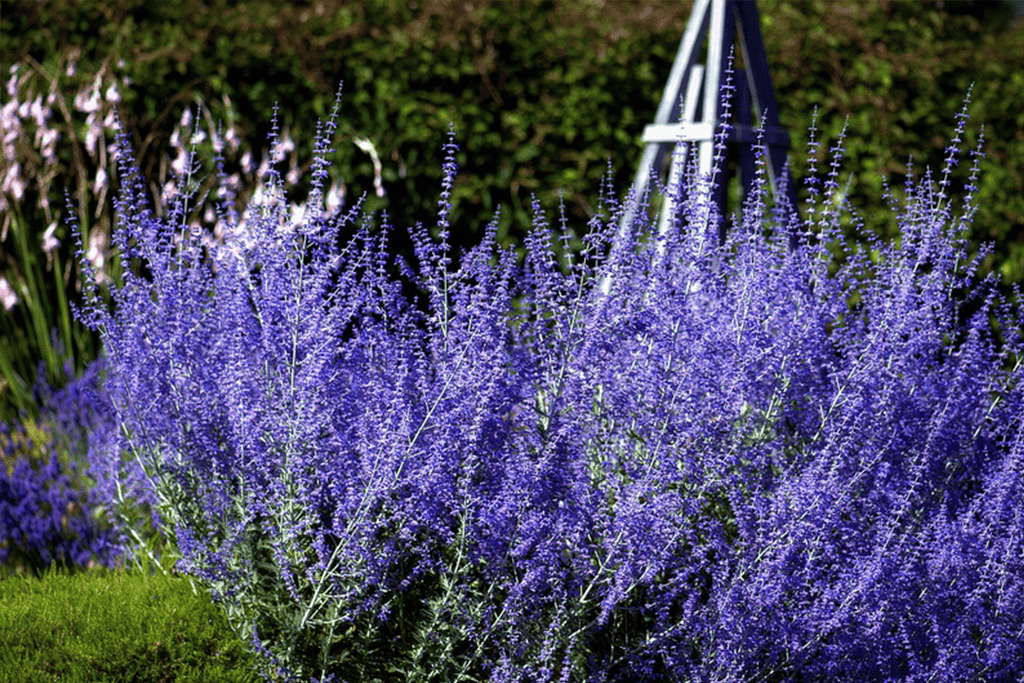
Perovskia, or Russian Sage, is a symbol of respect and admiration. Its silvery foliage and lavender flowers represent wisdom and good health. The plant’s hardiness and ability to thrive in harsh conditions remind us of the resilience and strength of wisdom.
Perovskia, also known as Salvia yangii or commonly called Russian sage, is a flowering herbaceous perennial plant and subshrub native to southwestern and central Asia. It’s known for its upright habit, square stems, gray-green leaves, and blue to violet blossoms arranged into showy, branched panicles.
Symbolically, Perovskia represents power, success, and has a strong character. Also It’s often offered in graduation ceremonies to express a strong feeling of achievement and success.
Caring for Perovskia involves providing it with plenty of sunlight, watering sparingly, and ensuring it has well-drained soil. It’s a drought-tolerant plant that thrives in poor soils.
Apart from Perovskia, it’s also known as Russian sage, Afghan lavender, Afghan sage, and Salvia yangii.
8. Polygonatum (Solomon’s Seal)
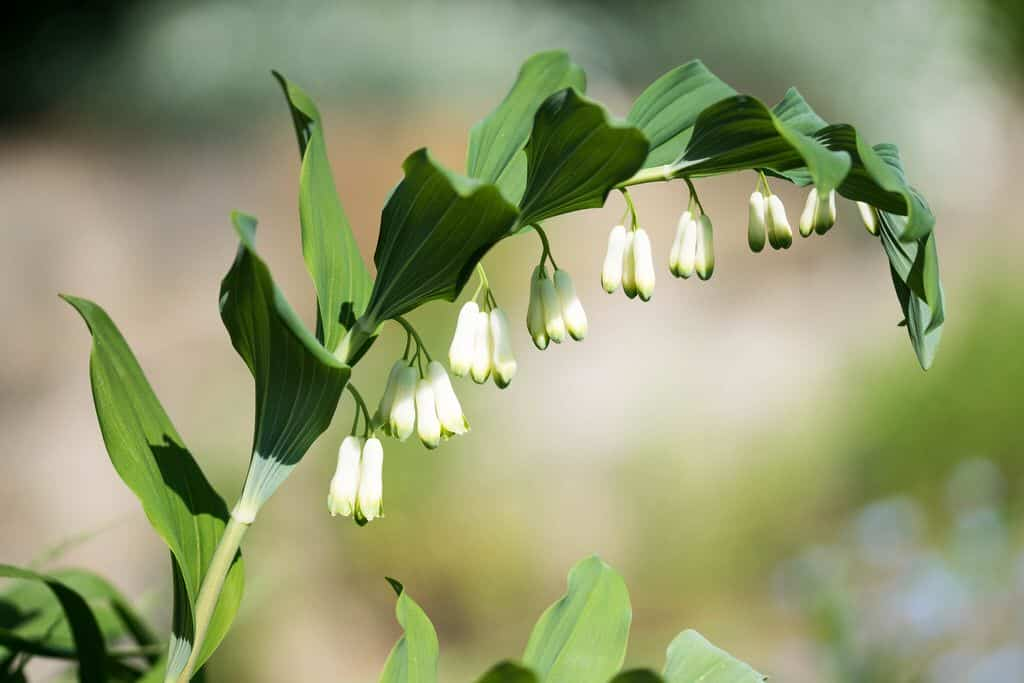
Polygonatum, also known as Solomon’s Seal, symbolizes wisdom and discretion. Also the tubers of the plant have seals that resemble the ancient Hebrew seal of King Solomon. The plant’s delicate, bell-shaped flowers and arching stems create a graceful silhouette, symbolizing the grace and subtlety of wisdom.
Polygonatum, also known as Solomon’s Seal, is a genus of about 60-70 species of flowering plants native to the Northern Hemisphere. However plant is recognized for its elegant arching stems, lance-shaped leaves, and small, tubular flowers that come in white, green, or pink.
Symbolically, Solomon’s Seal flowers represent wisdom, peace, and the triumph of good over evil. In the Victorian language of flowers, Solomon’s Seal signifies secrecy.
Caring for Solomon’s Seal involves providing it with plenty of sunlight, watering sparingly, and ensuring it has well-drained soil. It’s a woodland plant that prefers shade and dampness.
Apart from Solomon’s Seal, it’s also known as King Solomon’s-seal, and has other names like David’s-Harp, Ladder-to-Heaven, and Lady’s Seal.
9. Aquilegia (Columbine)
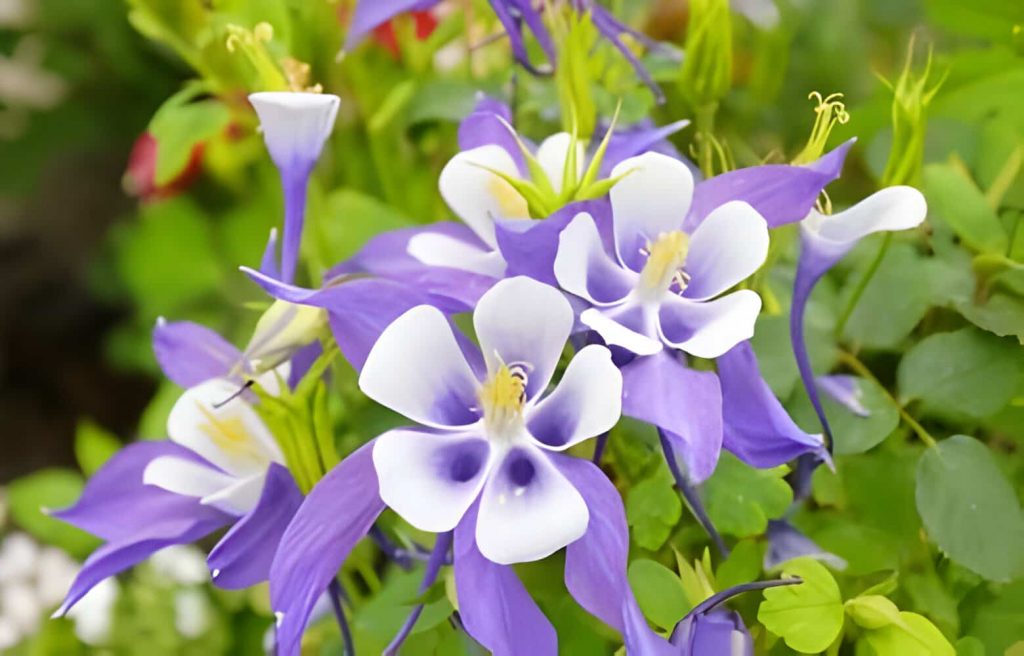
The Aquilegia Columbine symbolizes wisdom, strength, and happiness. It encourages growth and transformation, which are key elements of wisdom. The flower’s unique shape and vibrant colors make it a standout in any garden, symbolizing the uniqueness and vibrancy of wisdom.
Aquilegia, commonly known as Columbine, is a genus of about 60-70 species of perennial plants found in meadows, woodlands, and at higher altitudes throughout the Northern Hemisphere. The name Aquilegia comes from the Latin “Aquila”, or “eagle”, referring to the spurred, “hook” shapes within the blooms that resemble an eagle’s talons.
These plants are known for their spurred petals and are mainly consumed by long-beaked birds such as hummingbirds. They are also used as food plants by some Lepidoptera (butterfly and moth) caterpillars.
10. Euphorbia (Spurge)
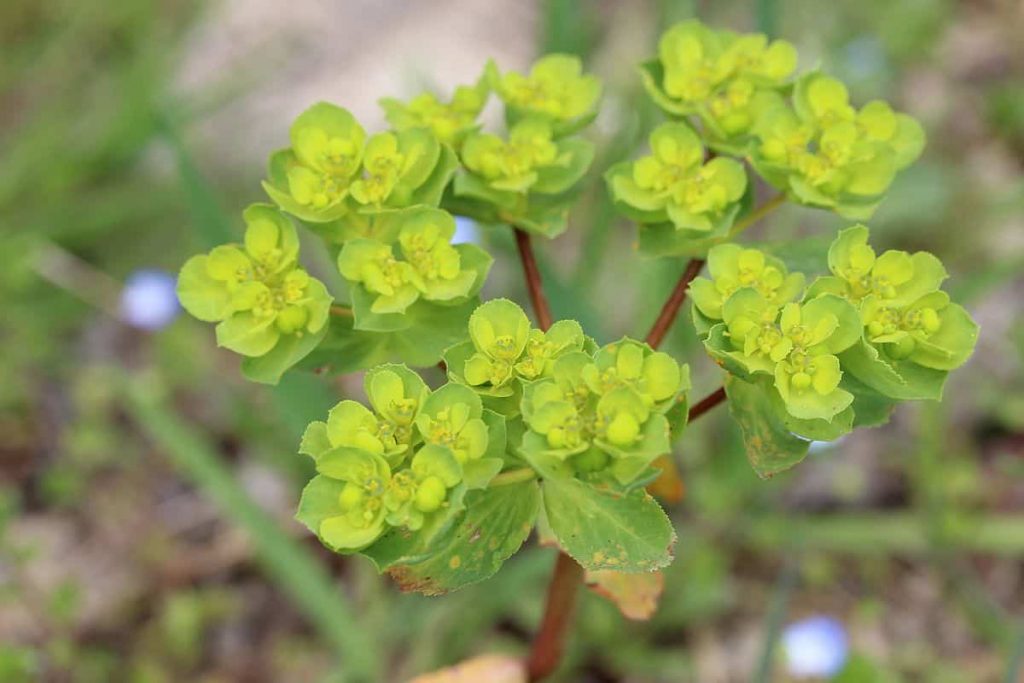
Euphorbia, or Spurge, symbolizes persistence and wisdom. This plant family is incredibly diverse, reminding us of the many forms wisdom can take. The plant’s unique and varied forms remind us that wisdom can come in many different forms and from many different sources.
In conclusion, these flowers that mean wisdom remind us of the different aspects of wisdom. Whether it’s the pursuit of knowledge, creative thinking, or the ability to see the bigger picture. hese wisdom flowers serve as beautiful symbols of the wisdom we strive to cultivate.
Remember, wisdom is not just about knowledge. It’s also about understanding, experience, and insight. And just like these flowers, wisdom can come in many forms. So, the next time you see a sunflower, marigold, or any of these flowers for wisdom, remember the wisdom they represent. Let these flowers of wisdom inspire you on your journey towards wisdom and enlightenment.
Summary Of 10 Top Flowers That Symbolize Wisdom
| No. | Flower Name | Color | Symbolism |
|---|---|---|---|
| 1. | Sunflower | Yellow | Adoration, loyalty, longevity |
| 2. | Marigold | Yellow, Orange, Red | Warmth, happiness, joy, optimism, good luck |
| 3. | Sage | Green, Gray | Health, life, balance, tranquility, knowledge, wisdom, maturity, neutrality |
| 4. | Jacaranda | Purple-Blue | Celestial wisdom |
| 5. | Chrysanthemum | Various (Purple, White, Yellow, etc.) | Friendship, trust, joy, optimism, longevity, fidelity |
| 6. | Iris | Various (Purple, White, Yellow, etc.) | Wisdom, valued friendship, faith, hope |
| 7. | Perovskia | Blue to Lavender | Wisdom, knowledge |
| 8. | Polygonatum | White, Green or Pink | Wisdom, peace |
| 9. | Aquilegia | Various (Purple, Blue, White, etc.) | Wisdom, courage, love |
| 10. | Euphorbia | Various | Purity, protection, wisdom |
FAQs
What are some flowers that represent wisdom?
The article discusses ten flowers that symbolize wisdom, including the sunflower, marigold, sage, jacaranda, chrysanthemum, iris, perovskia, polygonatum (Solomon’s Seal), aquilegia (columbine), and euphorbia (spurge).
Why is the sunflower associated with wisdom?
The sunflower is associated with wisdom because it always turns to face the sun, symbolizing spiritual knowledge and the desire to seek light and truth.
Are there any flowers that symbolize wisdom and good health?
Yes, the sage and perovskia (Russian Sage) are both associated with wisdom and good health. Also Sage is a renowned herb in many cultures that symbolizes wisdom, longevity, and good health. Similarly, perovskia represents wisdom and good health with its silvery foliage and lavender flowers.

Absolutely fascinated by the variety of flowers that symbolize wisdom. It’s amazing how nature communicates profound concepts like wisdom through its creations. Every time I see these flowers, I’m reminded to seek knowledge and understanding. Truly, nature is the best teacher!
I’m glad you are fascinated by the variety of flowers that symbolize wisdom. I agree with you that nature communicates profound concepts like wisdom through its creations. I think it’s wonderful that you are inspired by these flowers to seek knowledge and understanding. You are right, nature is the best teacher!
Iris, with its delicate petals and vibrant colors, truly bridges heaven and earth, imparting wisdom to those who appreciate its beauty. And the Sage, embodying practical wisdom, reminds us to seek knowledge and apply it in our lives.
Thank you for your comment. We’re delighted to hear that you appreciate the beauty and wisdom embodied by flowers like the Iris and Sage. These flowers indeed serve as a bridge between heaven and earth, reminding us of the importance of seeking knowledge and applying it in our lives. We hope our articles continue to inspire and inform you. Please feel free to share any other thoughts or questions you might have about our content. Happy reading! 🌺🌿
This is a lovely list! I never knew lavender flowers that symbolize wisdom, but it makes perfect sense. It always helps me clear my head and focus when I’m feeling overwhelmed. Maybe I should keep some around my desk at work!
I think sunflowers represent a kind of joyful wisdom, learning through experience.